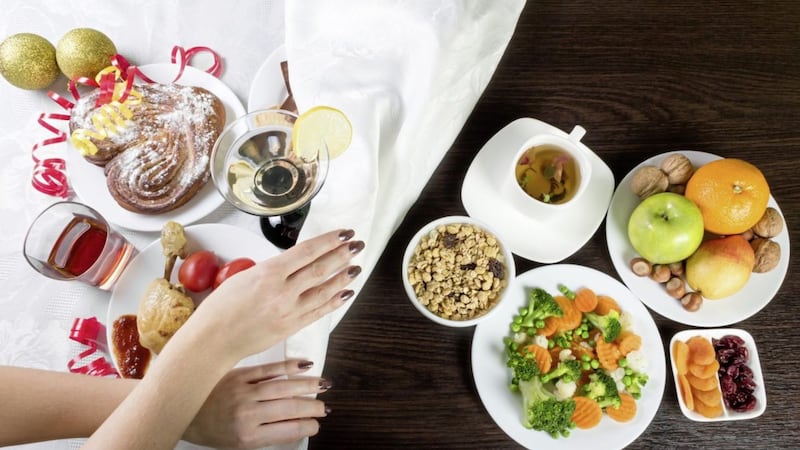NOW that the hangover has cleared and New Year’s Eve is a distant memory, most of us are ready to start afresh. We have had enough overindulgence and it’s time to get back on the healthy track.
If you are one of those people who set yourself a life-changing resolution at the start of every year, with all the best intentions to lose weight, get fit and eat healthier food, then maybe this year is the time to keep it real – think small changes instead of going big.
Small, everyday, achievable goals could be a better way to make your changes stick than going on a crazy fad diet, or get-fit-quick plan. So for the start of 2020 and a brand new decade, here are some changes to consider:
20 CHANGES FOR 2020
1 Take lunch to work. Get onto the habit of making lunch twice a week, make enough to do two or three days, so that you don’t have to spend time thinking about it every evening. Winter salads with leftover fish, a big pot of soup packed with lentils, or mini frittatas make a welcome change from sandwiches.
2 Batch cook. Dust off your slow cooker or casserole pot and make some winter warming meals to nourish you over the week.
3 Drink enough water. Aim for one and a half litres a day. Get into the habit of carrying a reusable water bottle with you; set it on your desk and fill up during the day.
4 Eat your greens! Have at least one portion of dark green leafy vegetables every day. Kale, broccoli, leeks, cabbage, Brussels sprouts are all in season.
5 Top up your omega 3 levels by eating fish a couple of times a week. Sardines, mackerel, herring, trout and salmon all count and the tinned stuff is just as good as fresh.
6 Supplement vitamin D3. The sunshine vitamin is in short supply at this time of year. Top your levels up with a supplement between now and May when the sun shines bright again.
7 Exercise outside. Get out of the gym and off the treadmill and into the great outdoors. Nature is a great healer, and there is good evidence that being outside can help our mental health too.
8 Step away from refined carbs. Opt for wholegrain versions of breads, rice, pasta, noodles, and make your portion size of these about the size of your fist.
9 Double your veg portion. Aim for two fist size portions of vegetables in your lunch box and on your dinner plate.
10 Eat more vegetables than fruit.
11 Rediscover the frozen food aisle. Stocking up on a few freezer essentials means it will be quick and easy to make a speedy, healthy dinner when your time (or energy) is in short supply. There are some great foods in the frozen section, from veg that can be roasted, to frozen cauliflower rice – this is a good way to top up your veg intake.
12 Go veggie once a week.
13 Eat within a 10-12-hour window each day to give your body time to rest and digest.
14 Ditch the diet! Instead, eat good quality, nourishing food that makes you feel good and function better.
15 Chew your food well.
16 Get away from your desk and off the sofa and sit at a table to eat meals.
17 Buy local. Support your local butcher, fishmonger, veg shop or farm shop and get back in touch with what’s in season.
18 Love your leftovers. Be food smart. Less food waste means you will get more bang for your buck.
19 Pass on the plastic. Take a veg bag to the supermarket or farm shop with you and choose fresh produce that is not wrapped in plastic.
20 Choose your snacks wisely. Get into the habit of eating three good meals a day, and if you need to snack, make it count – nuts and seeds, veg sticks or fruit, natural yoghurt or houmous all make healthy snacks.







